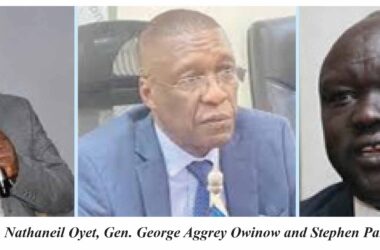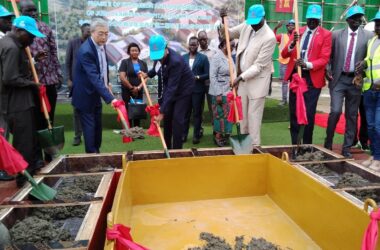By Philip Buda Ladu
Western embassies in South Sudan have endorsed the latest quarterly report from the Revitalized Joint Monitoring and Evaluation Commission (RJMEC), which paints a grim picture of the country’s peace process.
The embassies of Germany, the Netherlands, Norway, the United Kingdom, and the United States, along with the Delegation of the European Union, expressed deep concern over the “markedly worsened” political and security situation, echoing the RJMEC’s assessment that the current political climate is the most volatile since 2018.
The joint statement explicitly backed the RJMEC’s findings, which highlighted a significant stalling of the implementation of the Revitalized Peace Agreement (R-ARCSS) during the first quarter of 2025.
The report attributed this stagnation to a deteriorating political and security environment characterized by escalating armed conflict and widespread violence.
The Western embassies reiterated their urgent call for President Salva Kiir to reverse the house arrest of First Vice President Riek Machar and urged all party leaders to prioritize dialogue aimed at achieving a political solution.
They also strongly condemned the April 26 statement read by a senior transitional government minister that referred to “friendly” and “hostile” counties, a sentiment earlier labelled by the UPA as dangerous hate speech.
Furthermore, the embassies called on all parties to cease the use of violence for political competition and to refrain from unilateral actions.
The RJMEC report, the 26th since the signing of the 2018 peace agreement, detailed a worrying lack of progress across key areas.
It highlighted the detention and imprisonment of several high-ranking opposition members and Parliamentarians, alongside the house arrest of First Vice President Machar, as indicators of a move away from the principles of collegiality and consensus underpinning the peace deal.
According to the RJMEC report, the implementation of the agreement had “ground to a halt” due to repeated violations by the involved parties and the significant deterioration of the political and security landscape.
The report pointed to security violations allegedly committed by both the South Sudan People’s Defense Forces (SSPDF) and the Sudan People’s Liberation Army – In Opposition (SPLA-IO), which are now threatening the country’s stability.
Crucially, the unification and deployment of forces, a cornerstone of the peace agreement, have seen no advancement, with Phase I deployment remaining incomplete and Phase II training yet to commence. The escalating violence has had a devastating impact on civilians, leading to serious human rights violations, including death, injury, and displacement.
The RJMEC also noted the exacerbation of the already severe humanitarian crisis due to the violence, compounded by other factors like inter-communal clashes and natural disasters.
While the RJMEC report acknowledged limited progress in areas like Public Financial Management and the launch of the National Constitutional Review Commission’s civic education process, it highlighted “very little progress” in the critical areas of Transitional Justice, Accountability, Reconciliation, and Healing.
The RJMEC interim chair, in response to the deteriorating situation, reported extensive diplomatic efforts involving regional and international bodies. Despite these interventions, the political and security situation on the ground remains largely unchanged.
The report concluded with urgent recommendations for all stakeholders, including an immediate cessation of hostilities, the release of detained leaders, the reactivation of agreement implementation institutions, and the prioritization of force unification and crucial reforms.
The RJMEC report warned that the current fragile and volatile situation poses a “serious threat to the survivability” of the peace agreement, despite it being the most viable framework for lasting peace.
This assessment aligns with recent warnings from the head of the UN Mission in South Sudan, who described the country as being at a “perilous juncture” with escalating political tensions threatening to ignite renewed conflict.
Mr. Haysom had also highlighted mounting volatility in Upper Nile state and reports of renewed military mobilization.
The strong backing of the RJMEC report by these Western embassies underscores the growing international concern over the stalled peace process and the deteriorating situation in South Sudan, further increasing pressure on the country’s leaders to take urgent action.



